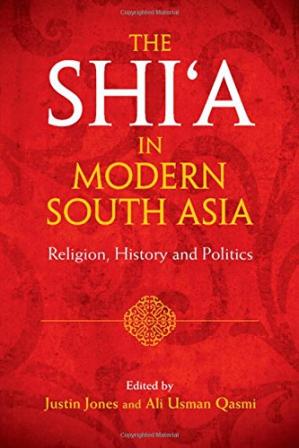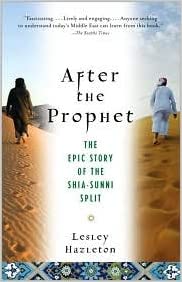A bill to increase the penalty for expressing any dissension towards the family, wives, and companions of the Holy Prophet (PBUH) and four Caliphs from three years to a minimum of ten years and a maximum of life in prison was approved by the Pakistani Senate on August 7, 2023.
The Criminal Laws (Amendment) Act, 2023 was unanimously approved by the National Assembly, the lower house of Pakistan’s federal Parliament, on January 17, 2023, amending Pakistan’s blasphemy statute.
This private member’s bill was introduced by Moulana Abdul Akbar Chitrali, a member of the religious party Jamaat-e-Islami.
The law was backed by Sunni religious parties in both houses of parliament, including Jamiat-e-Ahle Hadees Pakistan-JAP and Fazal-Ur-Rahman’s section of Jamiat Ulema Islam, a mainstream religious and political party of the Deobandi school of Sunni Islam.
Pakistan’s blasphemy law, which consists of sections of Chapter XV (“Of Offences Relating to Religion”) of its Penal Code, criminalize insults or derogatory remarks against religion or religious feeling. Pakistan, like many other South Asian jurisdictions, inherited its substantive criminal law, including certain blasphemy provisions, from the British colonial government through the Indian Penal Code, 1860. Pakistan’s blasphemy laws as enacted by the British were “religion-neutral.”
Dictator General Muhammad Zia-ul-Haq had added additional provisions to Pakistan’s Penal Code including 298-A in the section of 298 through an Ordinance in 1980. Those provisions were part of the Eight Amendment in the Constitution of 1973, that was passed by a National Assembly and Senate of the Pakistan construed through non-party elections in 1985.
Addition of the provision 298-A directly hit the Shi’a Muslims of the Pakistan because it said,
“298-A. Whoever by words, either spoken or written, or by visible representation, or by any imputation, innuendo or insinuation, directly or indirectly, defiles the sacred name of any wife (Ummul-Mumudeen), or members of the family (Ahle-bait) of the Holy Prophet (peace be upon him), or any of the righteous Caliphs (Khulafa Raashideen) or companions (Sahaaba) of the Holy Prophet (peace be upon him) shall be punished with imprisonment of either description for a term which may extend to three years, or with fine, or with both.”
Shi’a Islam doesn’t believe in sacredness of every that companion of the Holy Prophet (PBUH) who according to their beliefs either snatched the right to rule or fight against the family of the Holy Prophet and it doesn’t accept the rule of three Caliphs including Abu Bakar, Umar Ibne Khattab, Uthman Ibne Affan as Ideal Islamic Rule but in their views Caliphate System was un-Islamic and established while bulldozing the clear Nas- Order of the Holy Prophet near well at the place of Ghadeer-e-Khom in the congregation of his companions. And there are many other reasons, due to them Shi’a School of Islam doesn’t think majority of companions of the Holy Prophet Muhammad (PBUH) as sacred personages in Islam. And to boycott and disassociate from all those personages (Tabarra) who were enemies of Ahlul Bayat is integral part of Shia school of Islam.
Thus, Provision of 298-A in Pakistan Penal Code declared the ‘Tabarra’ a blasphemous act first time in 1980 in the era of dictator General Muhammad Ziaulhaq and that had made the practice of Tabarra a crime. It was the provision directly contradictory to the Article 20 of section of Fundamental Rights included in the constitution of 1973.
National Assembly established through non-party disputed elections held in 1985 by the dictator Ziaulhaq had passed that anti-Shia School provision included in 8th Amendment introduced in the Constitution of Pakistan.
Shi’a Muslims of Pakistan from 80s were being booked particularly under the provision of 298-A for practicing or allegation of practicing the ‘Tabarra’ till the introducing the new amendments in that provision by a member of JI in a private bill. Hundreds of thousands criminal cases were registered under the provision of 298-A of Pakistan Penal Code against Shia Muslims living in Pakistan.
Persecution of Shi’a Muslims over their practicing their faith like Tabarra through registering criminal cases in Police Stations and then pressurizing the Pakistan’s Judiciary for not to giving any relief have become a norm in Pakistan from 80s. Intensity in practices of such persecution in case of Shi’a Muslims came after formation of Anjuman-e-Sipah-e-Sahaba Pakistan-SSP a radical Shia-phobic organization emerged from Deobandi School of Sunni Islam. Sipaha-e-Sahaba Pakistan is active different names like Ahle Sunnat Wal Jamaat-ASWJ, Sunni Coordination Council (particularly in Sindh), Rah-e-Haq Party, in Bar Associations its legal bodies are functional either as Khatam-E-Nawbat Lawyers’ Forum or as Tahafuz-e-Namos-e-Sahabah Legal Forum. Such legal forums are in their essence prosecutors against those Shi’a Muslims who are booked under the provision of 298-A of PPC and they are alleged for committing the blasphemy, whenever they practicing their faith and rituals. They are acting as pressure lobbies, who not only exert pressure over the courts but they forced Bar Associations to cancel the membership of those lawyers who become defense lawyers for the Shi’a Muslims accused of blasphemy.
Pakistan’s mainstream political parties, pillars of civil society like Lawyer’s associations, Journalists’ bodies, Press Clubs , Teachers’ associations are not in position even releasing a single press statement against the legislation which legalizes the persecution of Shi’a Muslims just over practicing their faith, religious rites in Public or expressing any dissenting thing regarding to three Caliphs of Sunni Islam or against Mu’awiya ibn Abu Sufyan ibn Harb, Shi’a school of Islam declares all of them enemies of Islam, they boycott and disassociate completely from them.
In September 2020, At least 42 cases pertaining to blasphemy were registered across Pakistan under provision of 298-A and authorities had arrested hundreds of Shi’a Muslims including renowned 20 Shi’a Religious scholars, Zakirs , Noaha_Reciters across the country just over reciting a Ziyarat-e-Ashura2 ( A very old tradition of reciting a Prayer called ‘Ziyarat Ashura’ in Mourning Procession of 10th Muharram).

Shia Zakir were reciting Ziyarat-e-Ashura at Numaish Churangi on 2020 , that was aired live on 24HD News Channel owned by sitting caretaker Chief Minister of Punjab Syed Mohsin Raza Naqvi, PEMRA had banned the TV Channel.
https://twitter.com/itx_Zehraa/status/1300727227412344837?s=20
https://twitter.com/Kazim__Zaidi/status/1300725458452066304?s=20
Taqi Jaffer, 80 years old Shi’a Zakir not only booked under the provision of 298-A over reciting Ziarat-e-Ashura on 10th Muharram in main procession of Ashura in Karachi, a very organized hatred and violent campaign was run by Shi’a phobic organizations like ASWJ and TLP against him and his family. He and his family forced to flee from the country and they took refuge in a Western country, where they also living their lives while concealing their original identity.
In the history of Pakistan, very first-time legal persecution of Shi’a Muslims over practicing their certain faith like ‘Tabarra’, even to hold mourning gathering (Majlis-e-Aza) or waving the Alam (a black flag waving in commemoration of Abul Fazal Abbas Alamdar (flag holder of tiny army of Imam Hussain on the 10th Muharram of 61 AH in the battle field of Karbala.) was allowed and in Police Stations, FIRs were begun to register against them, when dictator General Ziaulhaq promulgated the Ordinance XX, while amending the Section of 298 of PPC and added a provision 298-A against Shi’a Muslims although not mentioning the name of Shi’a Muslims in the Ordinance XLIV in 1980.
In the following four years from the regulation of the ordinance, thousands of the cases were registered under the provision of 298-A against Shi’a Muslims just over practicing their faith and religious rites.
What will happen if the said proposed bill passed from both houses becomes Act?
Before introducing The Criminal Law (Amendment) Bill, 2023, crime under the provision of 298-A was bailable offence, punishment under the provision was either three years imprisonment, or with fine, or with both. Although to get bail accused of blasphemy under the said provision of PPC was very difficult thing but often after some month passed accused would get the bail because it was bailable offence but after amendments made in the provision of 298-A it will become like a impossible thing to get the bail either it Pre-Arrest or Post Arrest.
The said bill passed from both houses of the Parliament has made the crime non-bailable offence and extended the punishment minimum to 10 years and maximum to life imprisonment.
Notes:
1-Tabarra is called in Arabic التبري من أعداء الله which means complete boycott and disassociation from the enemies of Allah (SWT) who are also enemies of the Prophet (SAWA) and Ahlul Bayt (AS).
To read more about Tabarra, visit the link:
http://shiastudies.com/en/3890/the-doctrine-of-tawalla-and-tabarra/
To see related references in Primary sources of Shi’a books see following:
Tafseer Imam Hasan Askari (a.s.), p. 562
Al-Ehtejaaj, vol. 2, p. 330
http://alhassanain.org/english/?com=book&id=582&view=download&format=pdf
Behaar al-Anwaar, vol. 21 p. 239 narrating from Tafseer al-Ayyaashi under the verse of Surah Taubah (9): Verse 118
2-Ziyarat Ashura is attributed to Muhammad al-Baqir, the fifth Shia Imam, who transmitted it to his followers.
Links:
http://shiastudies.com/en/3890/the-doctrine-of-tawalla-and-tabarra/
References:
https://www.dawn.com/news/1577921/ulema-urge-state-to-take-notice-of-hate-campaign
https://nayadaur.tv/04-Sep-2020/several-shia-speakers-arrested-on-blasphemy-charges-after-ashura
https://www.pakistani.org/pakistan/constitution/part2.ch1.html
https://catalog.loc.gov/vwebv/search?searchCode=LCCN&searchArg=2013344971&searchType=1&permalink=y
https://www.reuters.com/article/us-pakistan-blasphemy-idUSBREA4709N20140508
https://dailytimes.com.pk/721801/lawyers-coerce-judge-to-punish-a-man-accused-of-blasphemy/






